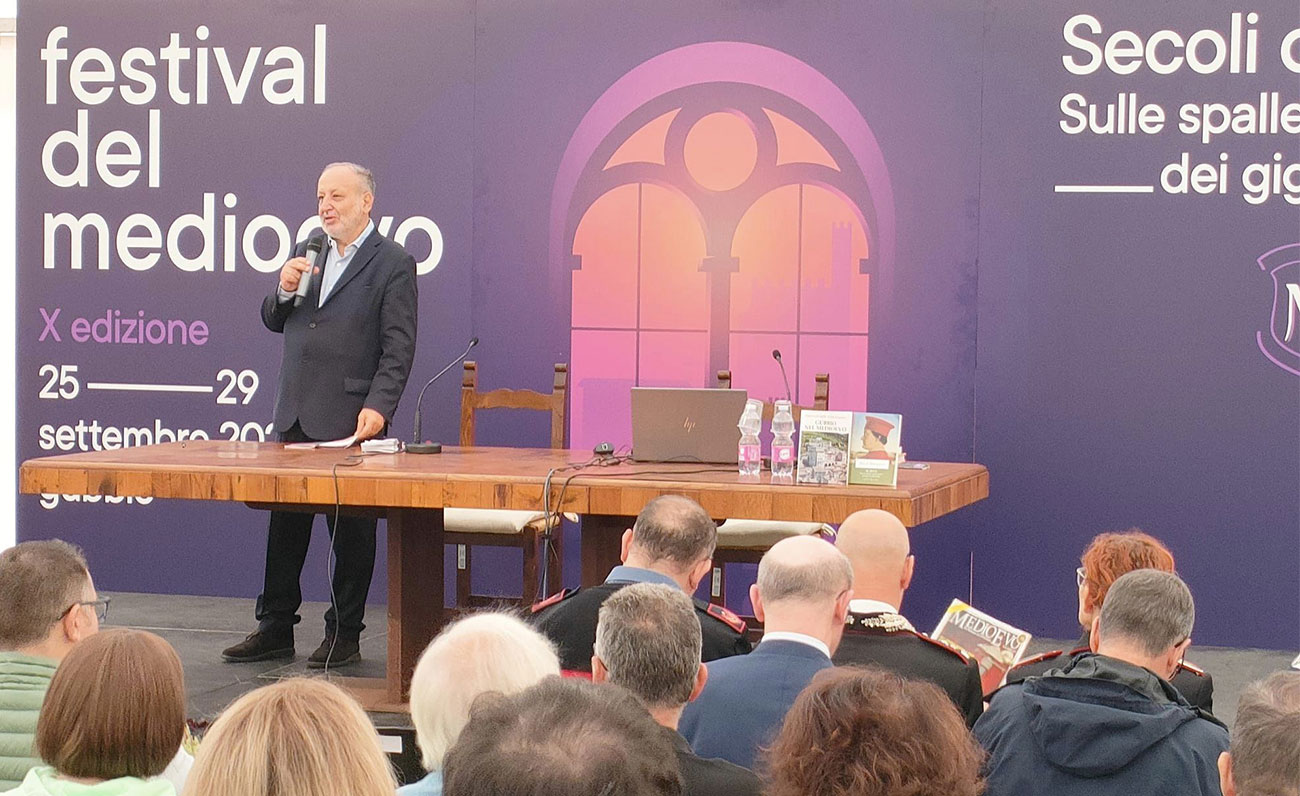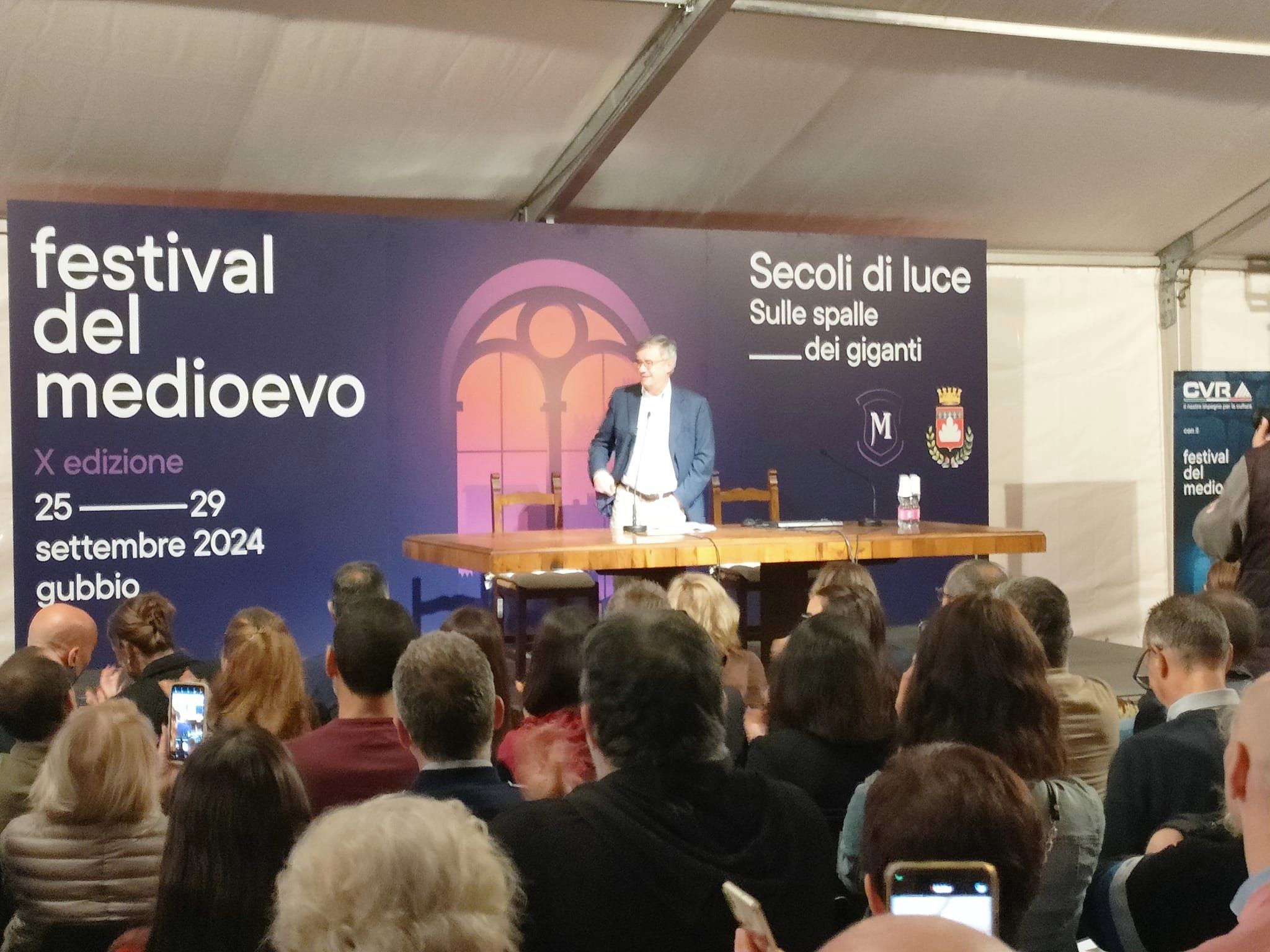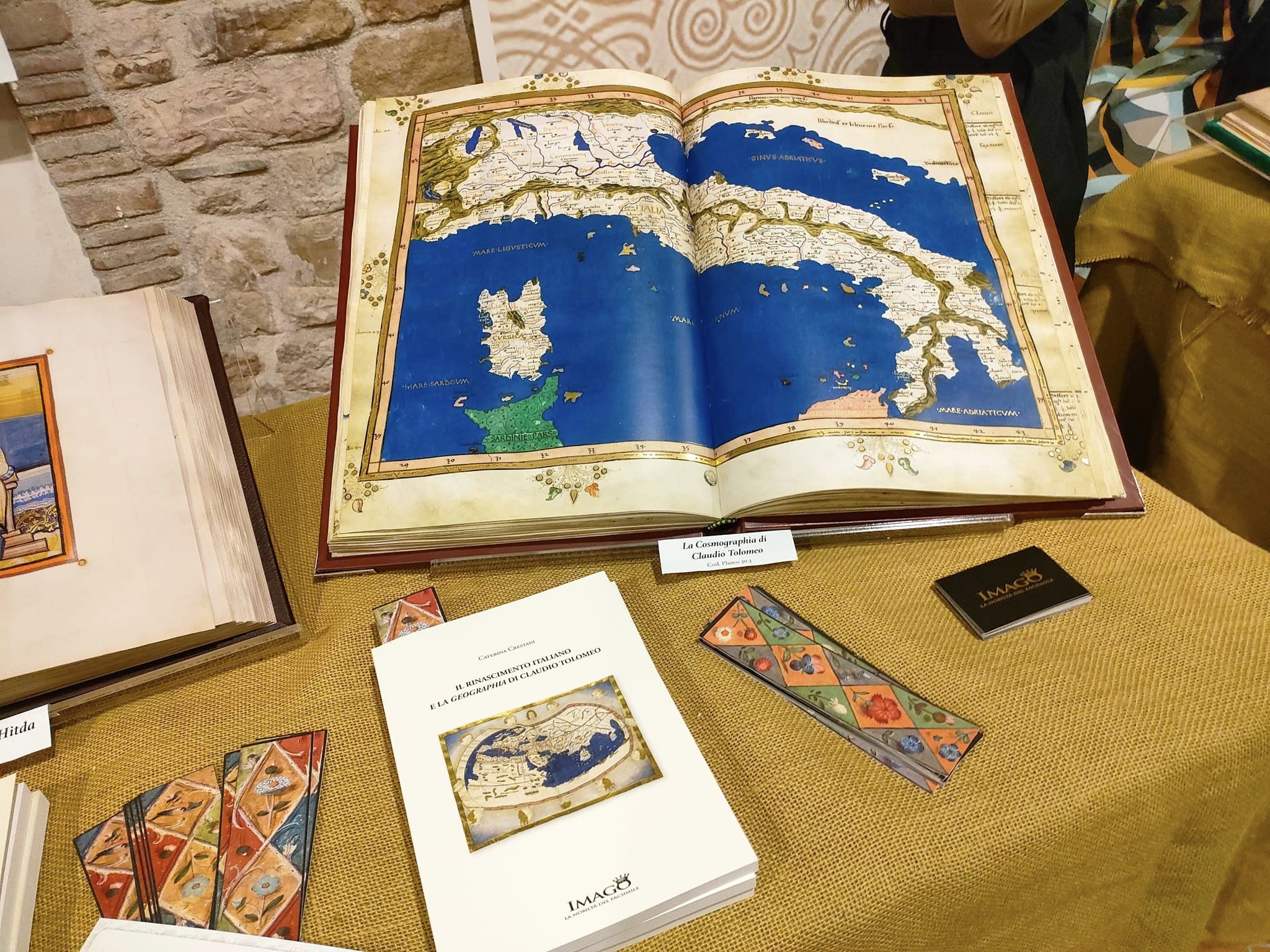In recent days, the Festival of the Middle Ages took place in Gubbio, which was a great success with the public and participation. We were there.
“We are like dwarves on the shoulders of giants, so that we can see more things and further than the latter saw: not because our sight is sharper, or our height gives us an advantage, but because we are supported and raised by the stature of the giants on whom we lean”. Around 1120, Bernard of Chartres loved to compare in front of his students his contemporaries and their glorious predecessors of the ancient age, the age of giants and saints.
And Centuries of light. On the shoulders of giants was the theme of the tenth edition of the Festival of the Middle Ages, held in Gubbio from 25 to 29 September. Ten years, therefore, and each year a theme: The birth of Europe (2015); Europe and Islam (2016); The city (2017); Barbarians, the discovery of others (2018); Women. The other face of History (2019); Mediterranean. The sea of ÔÇőÔÇőHistory (2020); Dante’s time (2021); Dynasties. Families and power (2022); East and West. The mobile frontiers of History (2023).
The creator and director of the Festival is the journalist Federico Fioravanti who ten years ago had the brilliant idea of ÔÇőÔÇőputting history in the square, bringing together historians, teachers of medieval literature, writers, art historians, scientists, philosophers, architects, journalists and students, teachers, professionals and many enthusiasts hungry for history. ┬źIn the space of a few years, the Festival of the Middle Ages has characterized itself as what appears to all intents and purposes as a construction site of Public History┬╗ (Federico Fioravanti. Communicating the Middle Ages between analog and digital, in Il medievista come Public Historian, 2022).

The success of the Festival has been and is overwhelming: in ten years, over 400 free history lessons and entirely viewable on the YouTube channel and via the Facebook page that has over 73,000 followers.
Over 70 popular lessons were held in the five days in morning and afternoon sessions that told of the thousand colors of the nameless era; of saints and women: Catherine of Siena, Hildegard, Eleanor of Aquitaine, Joan of Arc, Benedict of Nursia, Saint Augustine; of Dante and Frederick II; of Giotto and the enigmatic Master of Saint Francis; of a Middle Ages of embraces; of an imagined Middle Ages; of poisons and poisoning women; of a Middle Ages that creates; of the Middle Ages and Medievalism.
This year too, the Festival hosted great author evenings. Historian Alessandro Barbero, a superstar of medieval history, opened the first of the five evenings with the lecture-show The Revolution of Francis of Assisi in which he recounted the figure of the most famous Italian saint, revealing his human and intimate aspects, attracting an audience of 700 people.

Many collateral events enriched the five days: the Medieval Book Fair, the Arts and Crafts Workshops, The Middle Ages for Children, Miniaturists and Calligraphers from around the World.

Medievalism was a very interesting topic. The use of medieval clich├ęs in a negative light is increasingly in vogue. ÔÇťStuff from the Middle Ages!ÔÇŁ, ÔÇťBack to the Middle AgesÔÇŁ, ÔÇťWe are going back to the Middle AgesÔÇŁ and of course the dark Middle Ages, marked by suffering, terror and barbarism are discussed in articles ranging from crime to gossip, sports and religion, from economics to racism, from sexuality to politics. In 2023, in the Corriere dello Sport, director Ivan Zazzaroni titled his editorial: Juve sentence, afflictivity is a medieval theme, referring to Juventus’ misadventure in the face of sports justice.
In his manual Medieval History published in 2002, the historian Massimo Montanari wrote: ┬źWe often deplore the distorted use made of the Middle Ages by certain journalism, certain films, certain novels, certain celebrations or alleged historical reconstructions: things from the Middle Ages every time our account with history reopens or an irrational behavior makes its way; a Middle Ages of horrors, fears, terrible nightmares (almost as if our time had not generated worse ones); and at the same time, nostalgia for a Middle Ages made of gnomes and fairies, of heroic sanctity and noble feelings, of courtly love and strong solidarity. In any case, a Middle Ages far from real men, an island that does not exist on which to project our dreams or look for an alibi to feel better┬╗.
Alfredo Properzi
Latest posts by Alfredo Properzi (see all)
- Bevagna and ÔÇťitsÔÇŁ Middle Ages: Medieval Spring, preview of the Gaite Market - April 23, 2025
- The Medieval Festival: Ten Years of ÔÇťLightÔÇŁ on this Historical Period - October 8, 2024
- Arts and Corporations in the Umbrian Middle Ages. Their Reconstruction in the Mercato delle Gaite - September 17, 2024

